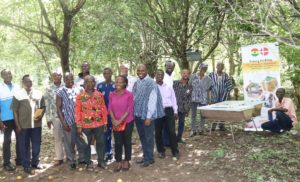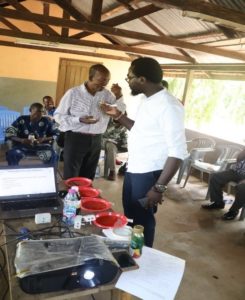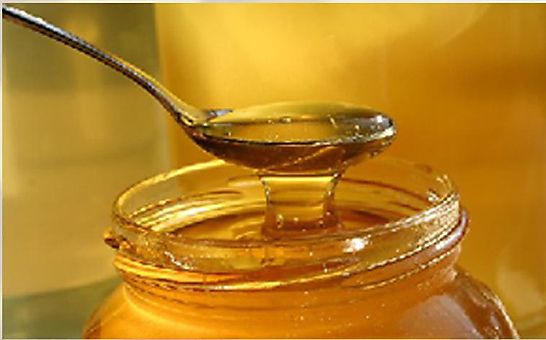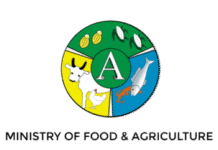Most honey consumers and producers find it difficult to tell whether the honey consumed at a particular time is original or adulterated even when samples of adulterated honey are subjected to tasting by the most experienced beekeepers!
The risk of consuming adulterated Honey is Induce Obesity, Increase Blood Glucose Level and Demonstrate Toxicity Effects says Dr Courage Besah-Adanu of the Agrifood Value Innovations and Marketing Society, Ghana (AGRIVIMS).

This was revealed during a training workshop for selected honey producers from five Districts of the Volta Region, including representatives of the Ghana Beekeepers Association, sponsored by the Danida Fellowship Centre and the Ministry of Foreign Affairs of Denmark, in collaboration of AGRIVIMS and the Ghana chapter of the Danida Alumni Network, (DAN-G), where these artisanal Honey producers were equipped with skills on how to produce pure honey within global standards.
During the training at the Evangelical Presbyterian Research Centre in Ho, participants were taken through the following topics:
• Honey Production systems and how each activity finally affected the quality of honey. Here each of the global honey standard parameters under consideration were discussed. These parameters are water (moisture) content, Hydroxymethylfurfural (HMF), pH, diastase activity, free acidity and electrical conductivity and their significance for quality assurance.
• Current Challenges in the Honey Production Sector and Proposed Solution. The key challenges among them are modern technologies in the honey sector, lack of good markets, processing and packaging challenges as well as lack of policy direction.
• Honey Production as a Business. The participants were taking through reorientation process to change their passive way of honey production in the sector, rather focus on developing the sector as a viable business venture.
• The advantages of belonging to an association as opposed to being an individual beekeeper in terms of producton and marketing of hive products.

Honey Adulteration Experiment
• At this stage participants were taken through some experiments on how to identify an adulterated honey through tasting. Samples were prepared and labelled.
• Sample A was pure honey and sample D was sugar syrup.
• Samples B and C were adulterated with portions of sugar syrup.
• Beekeepers who have had at least 10 years of experience of honey making were then asked to do sensory analysis of the honey samples, including tasting, and give their opinion on which of the samples they felt were pure honey or otherwise.
• It was very interesting as the various views indicated the difficulty in the ability to indicate an adulterated honey from a genuine one on the go.
• This then means that we the normal consumers of honey are more vulnerable of consuming heavily adulterated honey with alacrity.
This workshop gave more understanding that it is difficult to tell whether a honey sample is adulterated just by looking, feeling, smelling or tasting even by experienced beekeepers than to talk of a layman.
To conclude, reputation, trust and traceability are the key in the trading of honey as one cannot on the surface see if honey is adulterated or not unless tests in the laboratory.
Acknowledgment
Many thanks to the Danida Fellowship Centre and the Ministry of Foreign Affairs of Denmark for providing funding for this workshop. Also, many thanks goes to the local chapter of the Danish Alumni Network, DAN-G, the Chamber of Agribusiness and finally the hardworking team members of the Agrifood Value Innovations and Marketing Society-AGRIVIMS, for their unflinching support.
A brief profile of Courage Besah- Adanu (Ph.D.).
Courage Besah-Adanu has worked with small scale producers and local food systems since 2010. He currently is the key member and consults for the Agrifood Value Innovations and Marketing Society, Ghana (AGRIVIMS). Courage has been trained in how to explore Intellectual Property Rights (Geographical Indications, GIs) for the development of Agribusiness. He has worked extensively on honey quality within global standards and is also an advisor at the Chamber of Agribusiness Ghana.
Email: kadanu2@gmail.com
Contact: +233 2466 30512








